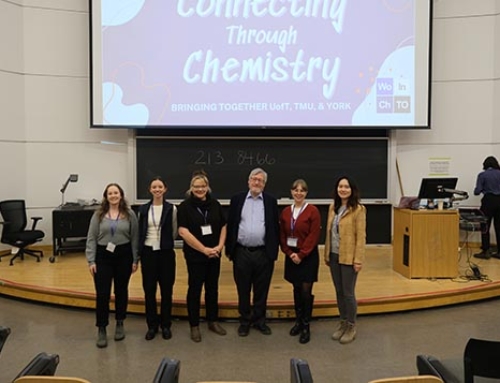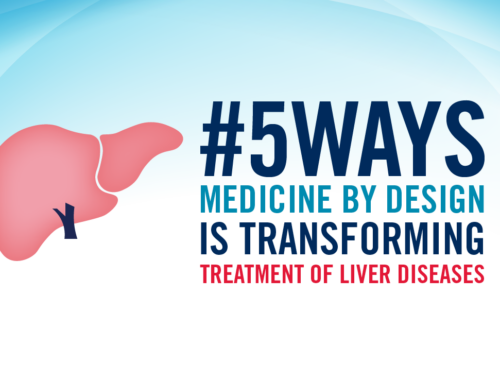
Dr. Shaf Keshavjee’s Lungs by Design is one of four newly-announced Cycle 2 team projects. Dr. Keshavjee is Surgeon-in-Chief at University Health Network in Toronto Ontario, the Director of the Toronto Lung Transplant Program, as well as a clinical scientist and professor with the University of Toronto. Photo by U of T Medicine.
Medicine by Design is expanding its regenerative medicine research portfolio with the addition of four multi-disciplinary, multi-institution projects that will lead to advances in the understanding and treatment of cardiovascular and lung diseases, diabetes and neurological disorders.
The projects are part of Medicine by Design’s nearly $21-million investment over three years in a new round of team projects, the first phase of which was announced last fall.
“These team projects build on Medicine by Design’s successes over its first three years and will strengthen the University of Toronto and its affiliated hospitals as a global centre for regenerative medicine,” said Michael Sefton, executive director of Medicine by Design, and University Professor at U of T’s Institute of Biomaterials & Biomedical Engineering and the Michael E. Charles Professor at the Department of Chemical Engineering & Applied Chemistry. “They have the potential to catalyze transformative discoveries and advance them toward tangible health and economic impacts, positioning us to lead the field for decades to come.”
Medicine by Design is supporting a total of 11 projects in this round, with the addition of the four new projects.
- John Dick, a senior scientist at the Princess Margaret Cancer Centre at University Health Network (UHN) and a professor at the University of Toronto’s (U of T) Department of Molecular Genetics, will lead a team investigating the cellular and molecular factors that drive age-related clonal hematopoiesis (ARCH). Hematopoiesis is the process by which the body makes blood cells. ARCH is a common feature of aging in which blood stem cells acquire genetic mutations that cause more proliferation than normal, leading their progeny to become overrepresented —a state that has been linked to inflammatory conditions such as cardiovascular disease. The goals of this project are to develop a new class of blood-based biomarkers to better monitor cardiovascular disease progression, identify patients who are best-suited to cell-based therapy, and develop ways to thwart ARCH-mediated blood stem cell expansion as a potential approach to prevent cardiovascular disease. Co-investigators include: Mathieu Lupien, Dr. Phyllis Billia, Dr. Slava Epelman and Dr. Steven Chan from UHN; and Gary Bader, a professor at the Donnelly Centre for Cellular and Biomolecular Research at U of T.
- Dr. Shaf Keshavjee, surgeon-in-chief and a senior scientist at UHN, will lead a team that aims to advance an ex vivo lung perfusion (EVLP) system it has developed that can maintain the function and viability of donor lungs for as long as 24 hours. In this next phase of its work, the team is advancing the EVLP technology from a short-term assessment tool to a longer-term lung repair platform that will utilize targeted human pluripotent stem cell-derived epithelial cell replacement therapy. Co-investigators include: Dr. Thomas Waddell and Dr. Marcelo Cypel, both at UHN; and Cristina Amon and Aimy Bazylak, both professors in the Department of Mechanical & Industrial Engineering at U of T.
- Jeff Wrana, a senior investigator at Sinai Health System and a professor in the Department of Molecular Genetics, leads a project that aims to use human brain organoids — three-dimensional tissue cultures grown from stem cells that can demonstrate key characteristics of an organ — to gain a better understanding of how human neural systems develop and to develop more predictive pre-clinical models of human neurological diseases. It will build on the team’s previous work characterizing vascularized human cerebral organoids using a novel microfluidic platform combined with single-cell profiling and tissue imaging. The project will also develop tools to drive more efficient and safer drug development and develop better strategies to treat stroke. Co-investigators include: Laurence Pelletier, an investigator at Sinai Health System; Lilliana Attisano and Ben Blencowe, both professors at the Donnelly Centre for Cellular and Biomolecular Research; and Sid Goyal, a professor in the Department of Physics.
- Juan Carlos Zúñiga-Pflücker, a senior scientist at Sunnybrook Health Sciences Centre and chair of U of T’s Department of Immunology, and Andras Nagy, a senior investigator at Sinai Health System and a professor in the Department of Obstetrics & Gynaecology and the Institute of Medical Sciences at U of T, co-lead the project. The project will investigate strategies to prevent the immune system from rejecting transplanted tissues derived from stem cells — a key challenge for regenerative medicine. Their team is using as its model stem cell-derived beta cells — pancreatic cells that produce insulin — which are being widely studied as a possible regenerative medicine therapy for diabetes. The team is investigating two approaches to prevent immune rejection of the transplanted beta cells. The first strategy is to develop tissue-specific regulatory T cells (Tregs) that can dampen the immune system’s response specifically to the transplanted beta cells without inducing systemic immunosuppression. A key part of this strategy includes harnessing tissue-resident innate cells — immune cells such as macrophages that recognize general features of pathogens rather than targeting specific invaders — to promote immune tolerance, beta-cell engraftment, and Treg function. The second approach involves “cloaking” the precursor cells from the immune system to prevent rejection. Cloaking will also be used to develop a single, safe cell line, which will serve as a “universal” source of therapeutic cells, reducing the need for genetically matched donor tissue. Co-investigators include: Dr. Naoto Hirano and Tracy McGaha, senior scientists at UHN; Sarah Crome, Cristina Nostro and Sara Vasconcelos, scientists at UHN.
Funded by a $114-million grant from the Canada First Research Excellence Fund, Medicine by Design brings together more than 130 principal investigators at the University of Toronto and its affiliated hospitals to work at the convergence of engineering, medicine and science. It builds on decades of made-in-Canada excellence in regenerative medicine dating back to the discovery of stem cells in the early 1960s by Toronto researchers Drs. James Till and Ernest McCulloch.






